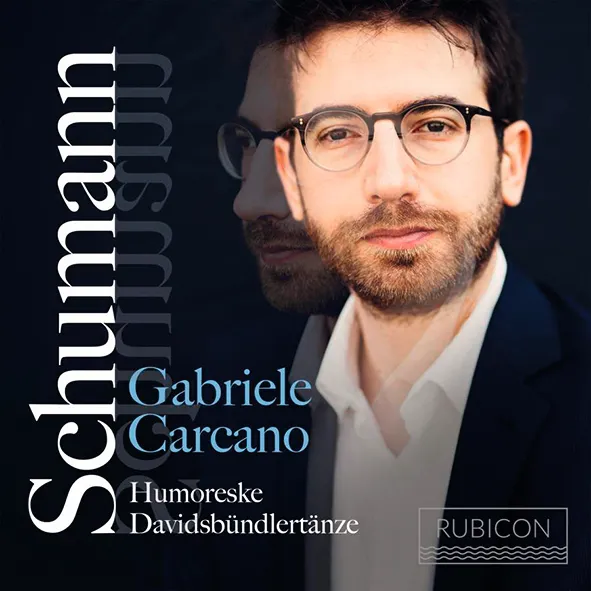
Schumann Humoreske; Davidsbündlertänze; Geistervariationen Gabriele Carcano (piano) Rubicon RCD1022 77:44 mins
Every Schumann admirer makes their own picture of this complex figure, be it literary, lovestruck, learned or downright loopy. Carcano offers a strong vision of a thoughtful, deliberate Schumann: his rendition of the opening Humoreske is multi-layered, weighty; it’s perhaps not quite as eccentric as one might hope because of Carcano’s tendency to favour the sustaining pedal. The 23 numbers of Schumann’s Davidsbündlertänze are notoriously difficult to hold together, especially when they are paced as deliberately as this. Carcano’s rendition has moments of great tenderness and impressive virtuosity, but he frequently disregards Schumann’s staccato and slur markings. This is not necessarily a problem, especially since those markings can be maddeningly inconsistent and illogical. But it decisively tips the balance of mood away from the mercurial, and makes it harder to bring variety to the numerous repetitions of material and textures (all of which Carcano observes).
The dignified pathos of the closing Geister-Variationen suits Carcano better. The foursquare, choral theme dissolves into drifting, dreamy swirls of piano texture, shot through with moments of exquisite harmony. But the old-fashioned sound of this recording does not make much of the quieter range. Carcano’s slightly baffling liner notes unfortunately needed proofreading (Davidsbündlertänze is misspelled throughout) and didn’t really illuminate his perspective. Altogether, this recording reveals the unique challenges Schumann’s solo keyboard music poses (no wonder Clara Schumann sometimes hesitated to programme it). Carcano’s performance left me deeply interested, if not wholly convinced.
Natasha Loges
